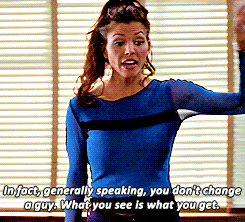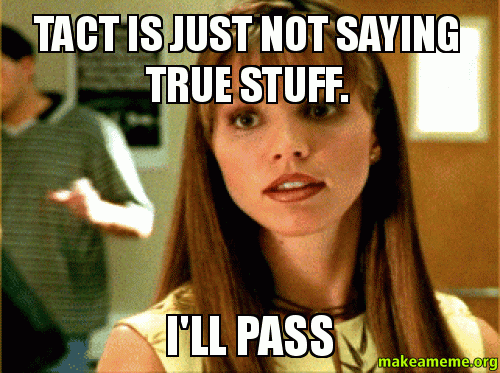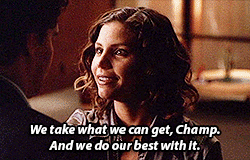So ... first sentences.
 The first sentence might be the scariest part of writing a story. You hear so many warnings about how important it is, how it can make or break the story. But when it comes to how to write that sentence, most textbooks give the same two rules. Start in the middle of the action, and keep it short. Neither of which is actually necessary.
The first sentence might be the scariest part of writing a story. You hear so many warnings about how important it is, how it can make or break the story. But when it comes to how to write that sentence, most textbooks give the same two rules. Start in the middle of the action, and keep it short. Neither of which is actually necessary.
The truth is that there are as many ways to write a first sentence as there are to write the rest of the story. There is no treasure map with an X conveniently marking the spot where that perfect combination of words is buried. You're just gonna have to search the entire island. But I can tell you what pitfalls to avoid and how to recognize the treasure when you find it.
1) Write the Story First
There's a difference between the first sentence of your novel and the first sentence of your first draft. Writing your first first sentence is a bit like planting a bomb. The best way to do it is quickly. Then you run like hell in the opposite direction and pray you get out alive. A day will come when you will turn back, armed with red pen and spellcheck, and edit that awful sentence until it shines, but it is not this day. This day we write! (Geek points to anyone who read that in the Aragorn's voice. Quadruple geek points if you held up an imaginary sword.)
2) Exposition Is Not the Devil
3) It Doesn't Have to Be Weird
It can be, but it doesn't have to. The Ghost Brigades by John Scalzi, one of the most gripping sci-fi novels I've ever read, begins with this sentence: "It was a rock."
On the other hand, The Android's Dream, another Scalzi masterpiece, begins like this: "Dirk Moeller didn't know if he could fart his way into a major diplomatic incident, but he was going to try." This bizarre little sentence introduces a complex and thought provoking tale of politics, bigotry, and human rights.
My point is, if weird works for your story, then go for it, and if it doesn't work, then stick with something simple like 'It was a rock.' Like I said back in #1, the story comes first. If your story is genuinely interesting, you don't need a bizarre, action packed first sentence to make your readers turn to page two. And if your story is weak, not even a sentence about farting diplomats will keep them from stuffing you back on the shelf.
4)The Second Sentence is Equally Important
And so is the third. In fact when I talk about the opening of a story, I really mean the first paragraph if not the first page. Seriously, who reads one sentence and then puts the book down? I know there are people who do, but there's no helping some people. I always read at least one chapter unless it's really bad. So even when you've finished your first and second drafts and it's time to polish up that beginning, don't obsess over a single sentence. Take a step back and look at the first moments of your story. Ask yourself, is this something I would read?
5) Start Off With the Good Stuff
Now that we've talked about what it doesn't have to be, let's talk about what a good opening sentence is.
"He reflected as he ran a trembling hand through his gray hair that this was probably the last time he'd see her."
Do you see anything wrong with that sentence? Cause I do. There's a great emotional hook there, and the writer stuck it at the end, after a bunch of much less interesting information. Okay, so the writer was me, and I did that deliberately to make a point, but not everyone has that excuse. Now let's fix it.
"This was probably the last time he'd ever see her. John's hand shook as he ran his fingers through his gray hair."
Much better. And you'll notice I broke it up into two sentences so the emotional hook stands apart from the physical description, giving it more power. You may also have noticed that I gave our anonymous He a name, which brings me to ...
6) Use Names if Possible
If your first sentence, or second or third, mentions a main character, now is the time to tell the reader the character's name. Physical description is less important. You can even wait until several pages in to mention the color of your character's eyes. Shocking, I know. But names are essential. First of all because they help you avoid pronoun confusion, and more importantly, because they help the reader empathize with the character. Like your mother told you when you brought home stray animals, once you name it you'll get attached. Once the reader has been introduced to a character by name, they're at least tentatively hooked.
Hope this was helpful. I'd say 'see you soon', but I think that phrase is jinxed, so as Gandalf said to Frodo, "Expect me when you see me." Happy writing!










